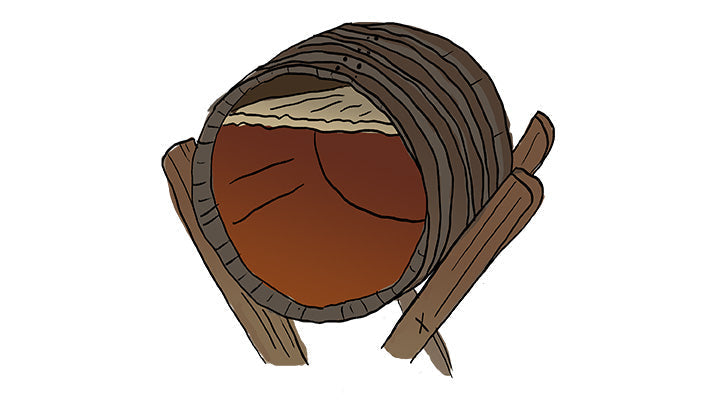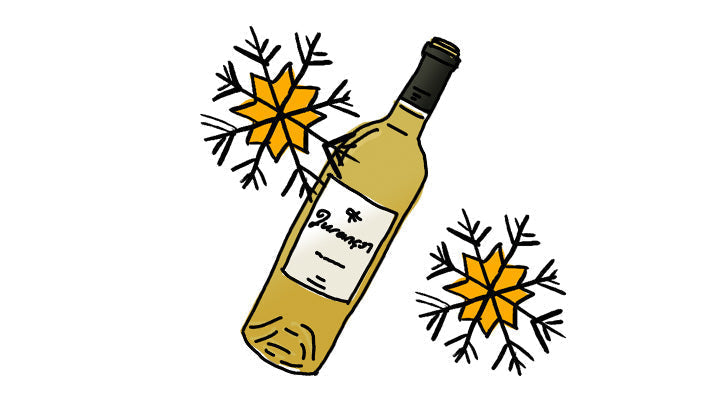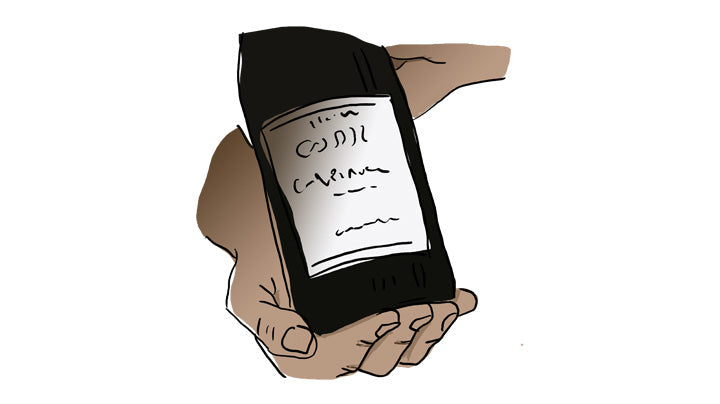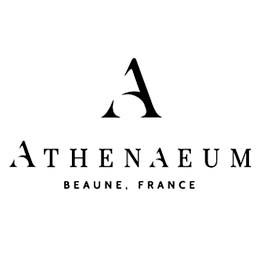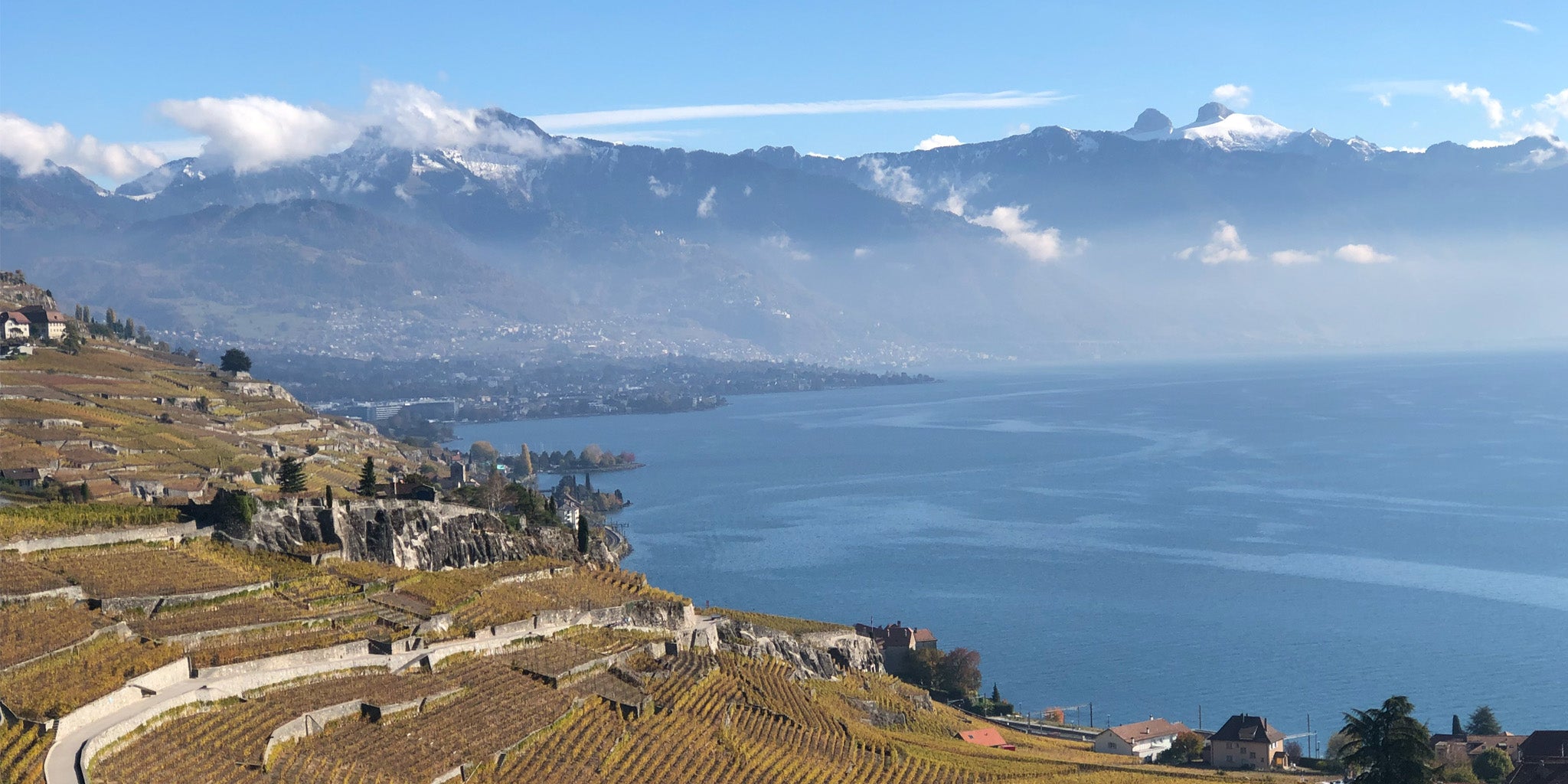The stunning Lavaux vineyard terraces are located on the North-Est part of Lake Geneva, in the larger Vaud region in Switzerland. This impressive landscape facing the Alps dates back to the 11th century. Easy to understand why it was recognised as World Heritage site by UNESCO.
Switzerland is a cool continental climate, so growers look for the best sites for grapes to ripen before temperatures drop quickly in autumn.
In this area, vines are grown on very steep slopes, in narrow terraces (perpendicularly to the slope), and are hold by stone walls. Slopes are south exposed, ensuring longer days of sunshine. They benefit from extra sunlight from the reflection of the lake and the walls. Being a large body of water, Lake Geneva also moderates temperatures, making winter less harsh and summer less hot (water temperature fluctuates slower than air temperature and this influences all the area). There is a strong diversity of soils resulting from a rich geological history.
Work in the vineyard has to be done by hands on this site, adding costs in a country where labour is relatively expensive. Plots are small, wines are produced in small quantities. This is why these wines usually sell at premium prices.
Chasselas is the most planted grape variety (70%). It is native to Switzerland and gives floral and mineral wines, sometimes slightly fizzy. A diversity of other varieties can be found (pinot gris, gewurztraminer, chardonnay, sauvignon blanc, pinot noir, merlot, syrah, gamay) including indigenous varieties (gamaret, garanoir, diolinoir).
The appellations found in the region are Lavaux AOC, Dézaley Grand Cru AOC and Calamin Gran Cru AOC. Lavaux AOC can be found with an additional designation specifying the area of production: Lutry, Villette, Epesses, St-Saphorin, Chardonne, Vevey-Montreux. Some renowned producers of the region include: Domaine Piccard, Pierre Fonjallaz, Blaise Duboux, Luc Massy.
The region is still unknown from the rest of the world as a wine producing area, though it produces a diversity of fabulous wines. Why so unknown then? More than 98% of Swiss wines remain in the country. Swiss wines are probably too expensive abroad, or they are simply kept in the country to satisfy Swiss consumers, in a time where local consumption is hugely praised.

